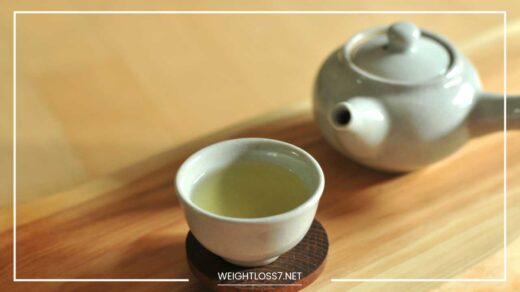Diet Programs 101: Find What Works for YOU

Diet Programs
Diet Programs: Demystifying the Maze to Find Your Perfect Fit
In the age of information overload, navigating the world of diet programs feels like deciphering a cryptic message. From the allure of a “bikini body in 30 days” to the scientific jargon of macronutrient percentages, it’s easy to feel lost amidst a sea of promises and conflicting information.
This comprehensive guide aims to be your lighthouse, shining a light on the different dietary approaches, their pros and cons, and ultimately helping you find the program that best suits your unique needs and goals.
Understanding Your Blueprint: Individual Needs and Goals
Before embarking on any dietary adventure, it’s crucial to take a step back and identify your personal roadmap. What are your aspirations?
Are you seeking weight loss, improved energy levels, a healthier gut, or perhaps you’re looking to manage a specific health condition like diabetes or heart disease? Reflecting on these questions is fundamental in selecting a program with a targeted focus aligning with your desires.
For example, if weight loss is your primary goal, programs that emphasize portion control and calorie awareness might be a good first step.
If you have specific health concerns, consulting a registered dietitian or nutritionist can be invaluable. They can tailor a program to address your unique needs and provide personalized guidance.
Exploring the Dietary Landscape: Popular Programs Explained
Now, let’s delve deeper into some of the most prominent diet programs, dissecting their principles and philosophies:
-
The Mayo Clinic Diet: Championing sustainable lifestyle changes, this program emphasizes healthy food choices like whole grains, fruits, and vegetables. It advocates for portion control and regular physical activity, making it a balanced and flexible approach well-suited for long-term weight management.
-
The Mediterranean Diet: Inspired by the culinary traditions of countries bordering the Mediterranean Sea, this program features a vibrant plate filled with fruits, vegetables, legumes, whole grains, and healthy fats like olive oil. It’s lauded for its heart-healthy benefits and its emphasis on fresh, delicious ingredients.
-
The DASH Diet: Designed to lower blood pressure, the DASH diet prioritizes fruits, vegetables, whole grains, and low-fat dairy products. It restricts red meat, saturated and unhealthy fats, and added sugar, promoting a balanced and heart-friendly approach to eating.
-
The Flexitarian Diet: This program embraces a mostly plant-based approach, encouraging the consumption of vegetables, fruits, whole grains, and legumes as the foundation of your diet. While it allows for occasional inclusion of meat, poultry, or fish, the focus remains on plant-based powerhouses.
-
The Volumetrics Diet: This approach prioritizes foods with low calorie density. Imagine foods like fruits, vegetables, and broth-based soups – they’re filling yet low in calories, promoting satiety and potentially leading to weight loss without severe calorie restriction.
-
The Ketogenic Diet: This high-fat, low-carbohydrate diet puts your body into a metabolic state called ketosis, where it burns fat for fuel instead of glucose. While effective for rapid weight loss, it can be very restrictive and may cause side effects like headaches and fatigue.
Beyond the Basics: Different Approaches and Their Implications
Each program has its own set of advantages and limitations. Here’s a deeper dive into the different approaches and what they entail:
-
Structured Programs (e.g., Weight Watchers, Noom): These programs offer clear guidelines, support groups, and accountability through points, tracking systems, and online communities. They can be a great fit for individuals who thrive on structure and external motivation. However, they can be expensive, require strict adherence to their specific system, and may not always promote long-term, intuitive eating habits.
-
Macronutrient-focused Programs (e.g., Keto, Paleo): These programs prioritize the balance of macronutrients – carbohydrates, proteins, and fats – within your diet. While some like Keto can be effective for weight loss and managing certain health conditions, they can be restrictive, eliminate entire food groups, and may not be suitable for everyone. Consulting a doctor before starting a high-fat diet is crucial.
-
Lifestyle-based Programs (e.g., Mediterranean Diet, Mayo Clinic Diet): These programs promote healthy eating habits, sustainable weight management, and often offer a wide variety of delicious and satisfying foods. They may require more planning and self-discipline compared to restrictive programs, but they foster a long-term relationship with food.
Finding Your Perfect Fit: Navigating the Choices
The perfect diet program should be as unique as you are. There’s no one-size-fits-all solution. The key lies in selecting a program that seamlessly integrates with your lifestyle, caters to your taste preferences, and aligns with your health goals. Here are some practical tips to guide you:
-
Consider your lifestyle: How much time do you have for meal prep? Do you enjoy eating out often? Choose a program that can be easily integrated into your daily routine.
-
Be realistic about your cooking skills: If elaborate culinary creations aren’t your forte, a program with simple recipes or a focus on whole, unprocessed foods might be a better fit.
-
Prioritize your health: If you have any underlying health conditions, consult your doctor before starting any new diet program. They can help you choose a program that complements your existing medical management plan.
-
Read and research: Delve into the science behind different programs, understanding their potential benefits and drawbacks. Reputable websites from government health organizations, universities, and professional dietetic associations offer valuable information.
-
Don’t be afraid to experiment: Trying different programs can help you discover what works best for you. Remember, consistency is key to success. Choose a program you can realistically stick with for the long haul.
Making it Sustainable: Beyond the Diet
The ultimate goal of any diet program should be to create sustainable lifestyle changes. Look for a program that teaches you healthy eating habits you can maintain for the long term.
Fad diets or restrictive plans may lead to short-term success, but they’re often difficult to stick with in the long run. Here are some additional tips to promote long-term dietary success:
-
Focus on progress, not perfection: Aim for gradual improvements. Celebrate small victories and don’t get discouraged by setbacks. Every healthy choice is a step in the right direction.
-
Find joy in food: Explore new cuisines, experiment with flavors, and focus on the pleasure of mindful eating. A healthy diet shouldn’t feel like deprivation.
-
Cook more at home: This gives you control over ingredients and portion sizes. Plus, it can be a fun and rewarding way to connect with food.
-
Seek support: Surround yourself with positive influences who support your health goals. Enlist a friend or family member as an accountability partner, or join online communities focused on healthy eating.
-
Listen to your body: Pay attention to hunger and satiety cues. Don’t deprive yourself to the point of feeling overly hungry, and stop eating when you’re comfortably full.
Beyond the Basics: Embracing a Holistic Approach
While diet plays a crucial role in overall health and well-being, it’s just one piece of the puzzle. For long-term success and a truly holistic approach, consider these additional factors:
-
Mind-Body Connection: Cultivate a healthy relationship with food. Practice mindful eating, focusing on the sensory experience and appreciating the nourishment you’re providing your body. Techniques like meditation and stress management can also be beneficial, as stress can often lead to unhealthy eating habits.
-
Physical Activity: Regular exercise is vital for a healthy lifestyle. Find activities you enjoy, whether it’s brisk walking, dancing, swimming, or team sports. Aim for at least 150 minutes of moderate-intensity exercise or 75 minutes of vigorous-intensity exercise per week.
-
Quality Sleep: When you’re well-rested, your body functions at its optimal level. Aim for 7-8 hours of quality sleep each night. Create a relaxing bedtime routine and establish a consistent sleep schedule.
-
Hydration: Water is essential for countless bodily functions. Drink plenty of water throughout the day to stay hydrated and support your metabolism. Aim for around eight glasses of water daily, adjusting based on your activity level and climate.
Building a Balanced Plate: Essential Food Groups
No matter which diet program you choose, a balanced plate should be the foundation. Here’s a breakdown of the essential food groups and their role in a healthy diet:
-
Fruits and Vegetables: These powerhouses are packed with vitamins, minerals, fiber, and antioxidants. Aim for a variety of colors on your plate to ensure you’re getting a broad spectrum of nutrients.
-
Whole Grains: Choose whole grains like brown rice, quinoa, oats, and whole-wheat bread over refined grains. Whole grains provide sustained energy, fiber for gut health, and essential vitamins and minerals.
-
Lean Protein: Include protein sources like lean meats, poultry, fish, legumes, tofu, and tempeh in your diet. Protein is essential for building and repairing tissues, and it helps you feel satiated.
-
Healthy Fats: Don’t fear healthy fats! Include sources like nuts, seeds, avocados, and olive oil in your diet. These fats provide essential nutrients, support satiety, and contribute to heart health.
Remember, Balance is Key
While some programs may emphasize specific food groups, a balanced approach is crucial. Restricting entire food groups can lead to nutrient deficiencies and unhealthy relationships with food.
Don’t let the overwhelming world of diet programs dishearten you. By understanding your individual needs, exploring the available options, and choosing a program that aligns with your lifestyle, you can embark on a journey of healthy eating that’s both sustainable and enjoyable.
Remember, the most effective diet is the one you can stick with for life. Embrace the process, celebrate your progress, and enjoy the delicious journey towards a healthier you.
Think of your approach to diet and health as a lifelong journey, not a quick fix. With self-awareness, a commitment to learning, and a willingness to experiment, you can find a program that aligns with your unique needs and preferences.
Embrace the journey, celebrate your progress, and enjoy the delicious and nutritious adventure towards a healthier you.

















